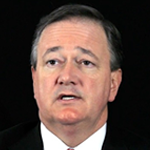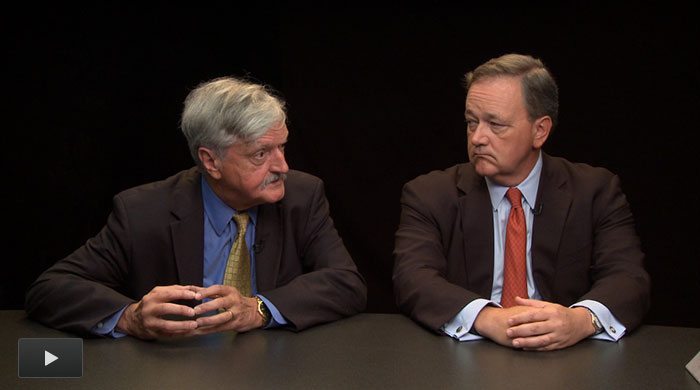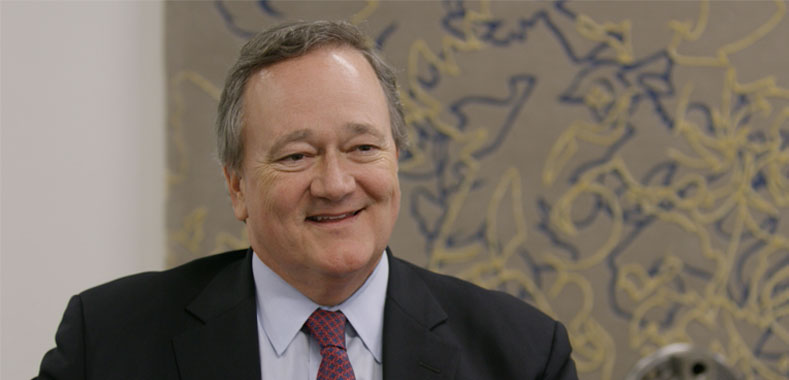How Parkinson’s Affected My Family
Castle Harlan Co-President Howard Morgan describes his father’s battle with Parkinson’s Disease and how the Parkinson’s Disease Foundation is backing science to find a cure. Please support: https://www.drugscience.org/parkinsons/
Transcript Download Transcript
How Parkinson’s Affected My Family
A Privcap Conversation with Howard Morgan of Castle Harlan and the Parkinson’s Disease Foundation
What experience have you had with Parkinson’s Disease that led you to join the Parkinson’s Disease Foundation as Chair?
Howard Morgan, Castle Harlan and Parkinson’s Disease Foundation:
Well, it’s really quite personal. My father had Parkinson’s and the discovery of the disease is unusual. As in terms of many diseases, you go in, you get a test and you’re done. There is no so-called “biomarker.” There is no conclusive test. My dad in the mid-1990s had a small tremor, which is often how you start to see the symptoms. When he was in his early 60s he had other issues. He had diabetes and oftentimes, hard to really nail where some of the symptoms are coming from. Ultimately the test, to this day, if you go into the leading Parkinson’s clinics, is observational. A highly trained doctor will observe you getting out of bed, sitting at a table, drinking a cup of coffee and it’s through the pauses, the freezes, the shaking, that you identify the disease. Now, my dad was a very public person. He was actually trained as a journalist and he was quite a proud person. So acknowledging these issues was probably the first breakthrough. I kind of wish he had acknowledged them earlier because there are some treatments that perhaps he could have gotten earlier. And I saw him struggle with this. It weakened his body, which weakened his mind, combined with some of the other issues ultimately led to his passing away. But it was a very personal connection to try to make a difference to a disease that was affecting my father.
What did you admire about the PDF’s approach to searching for a cure?
Morgan: Well, I like the science, frankly. It’s not what I do day to day so it’s kind of a refresh for me to have access to the world’s greatest scientists, neurologists, the subset of movement disorders. These are brilliant people; A geneticist. So every board meeting that I attend there’s usually a small session on the pure science. And the focus of PDF, which is distinctive of other Parkinson’s groups, is core, discovery science and I find that very exciting. In addition, we do patient advocacy. Communicating on behalf of, convening Parkinson’s patients, educating Parkinson’s patients, and in many cases, through education, bringing early patients into the fold, admitting that they have or acknowledging the disease, participating in clinical trials, being part of the face that then draws other patients in early.
How can people join the fight against Parkinson’s?
Morgan: Well, certainly supporting PDF would be fabulous. If you’d like to call PDF in New York and volunteer your time, there are numerous grassroots organizations, fundraising drives. If anyone has Parkinson’s or thinks they might, get it checked out and be connected to advocacy and peer groups. Encourage anyone who has an interest to come forward. There are a whole lot of ways that one can be helpful.


